//A 90’s researcher at Silk Road Institute said ‘Political neutrality means being partisan for any duly appointed government.’ What do you think? //
The issue of political neutrality in civil service has returned to the limelight recently amid the publication of the updated Civil Service Code (Draft for Consultation) by the Civil Service Bureau. It is paramount for the service to remain politically neutral for effective governance in the city. But how should ‘political neutrality’ be construed?
The Hong Kong civil service has, to some degree, inherited the principle of political neutrality from the British civil service system during the colonial period. By looking at the Whitehall model, one can grasp a better understanding of what true political neutrality entails in the service.
Professor of Political Science Graham K. Wilson notes that the British civil service system stands out from those of the United States and many European countries. It is unique in its attempt to provide a neutral and competent civil service that can work with any legitimately appointed government. It is expected that high-level civil servants can work equally for Labour and Conservative governments, such as denationalising ports for the Tories that were previously nationalised by Labour. In contrast, the bureaucratic systems in Germany and the United States are more inclined to replace top-level bureaucrats with personnel aligned with the new party in power. In Germany and France, it is expected that a change in the party dominating the governing coalition will result in a significant change in the higher bureaucracy. On the other hand, the US is often seen filling key bureaucratic posts with political appointees. While there are some examples of neutral competence within the American bureaucracy, these have been politicized as political appointees increasingly reach down into the bureaucracy.
Since British civil servants remain in government even when there is a change in the party in power, the civil servants, as Scholar Rose has argued, have been expected to be extremely partisan for whoever is in power. Any detour from that only weakens the legitimacy of keeping the Whitehall model, and the natural and reasonable effect is to move towards the US and German approach, filling key bureaucratic posts with political appointees every time there is a change in government, to ensure the smooth operation of any administration. Thus ‘political neutrality’ in the British civil service system is defined best as a willingness to be partisan for any duly appointed government.1
The contentiousness of political neutrality in the Hong Kong civil service peaked during the Hong Kong version of the ‘colour revolution’ back in 2019 when some civil servants were reported in participating in public demonstrations against the government. To put this into perspective, according to Gene Sharp, the father of the colour revolution, all government is supported by several pillars, including inter alia, civil service, and military. Transforming those pillars into ‘one of us’ will thereby change the regime without a single drop of blood.
At that time, there was a view in the community that for the service to remain neutral, civil servants should not take sides between the two camps, including the government’s stance. Some even proposed that ‘the civil service was ready to heal the divide between the government and the people’, which dominated the theme in the assembly organized for civil servants on the 2nd of August 2019. In fact, after the release of the updated Civil Service Code (the Code) (Draft for Consultation), some in the public have still questioned whether civil servants should be allowed to participate in government-supporting public events but not join demonstrations that criticize the government. All these arise from the same misrepresented school of thought, that for the service to remain neutral, civil servants should not take sides. As explored extensively by academia, political neutrality in the British civil service system, a principle Hong Kong, to a certain extent, inherited, is defined best as a willingness to be partisan for any duly appointed government. This implies that all civil servants shall, to the best of their ability, support all legitimately appointed government’s endeavours. It is under this fundamental context, that the civil service has no room to be independent from the government to ‘heal the divide between the government and the people’. And it is under this fundamental context, that it is appropriate for civil servants to enlist in public events to support the government but not the other way.
Some in the community proceeded with the argument that once a civil servant is off duty, he/she enjoys the freedom and rights of any citizen, may it be participating in public demonstrations criticizing the government, and that the principle of political neutrality did not intend to restrict the rights and freedom of civil servants in those regards. However, as pointed out by scholars, civil servants under the Whitehall model, which is similarly practised in Hong Kong, are expected to work with equal zeal for any administration. Under the General Principles of Conduct of British civil servants, civil servants ‘must not take part in any political or public activity which compromises, or might be seen to compromise, your impartial service to the Government of the day.’ A civil servant exercising an ordinary citizen’s rights and freedom to join public events to criticize the government might therefore compromise, or might be seen to compromise, his/her impartial service to the government of the day, thus it is a conduct that shall not be pursued.
Resembling the Whitehall model, Hong Kong civil servants stay in office permanently. To ensure the smooth operation of governance, it is imperative for the service to remain ‘politically neutral’, which shall be construed as providing the most competent civil service for any legitimately appointed government. Any deviation will only erode the government and the public’s trust in the prevailing civil service system. One of the undesirable consequences might be to move towards the US and German approach, replacing bureaucrats with personnel aligned with the new party in power every time there is a change in government. The civil service in Hong Kong serves the public with dedication and is reputed for its efficiency, integrity, impartiality and professionalism. It plays a pivotal role in fostering effective governance as well as maintaining the stability and prosperity of the city. It is in everyone’s interest that the service maintains this course, and the updated Civil Service Code endeavours to achieve just that.
請Follow我們的YouTube頻道:https://bit.ly/2kgU8qg
下載我們的手機應用程式,收看第一手精彩內容:https://www.speakout.hk/app





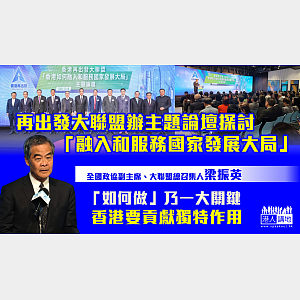
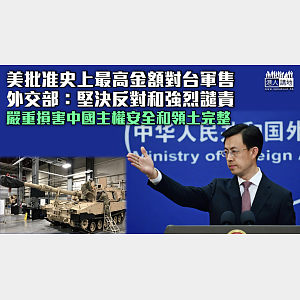
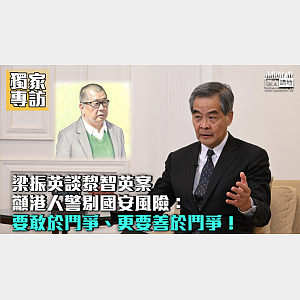
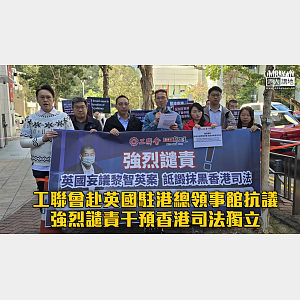



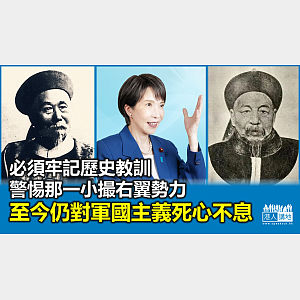
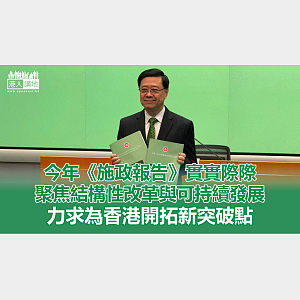
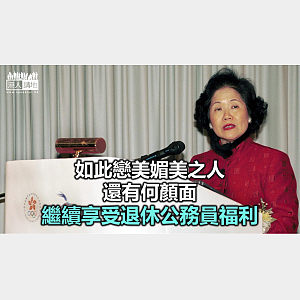
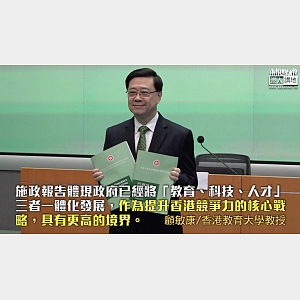
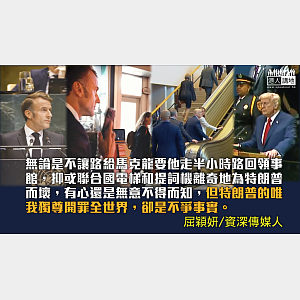

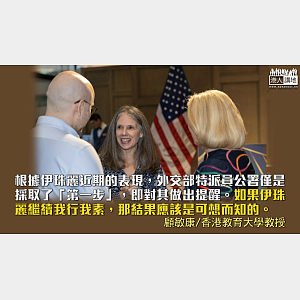













評論